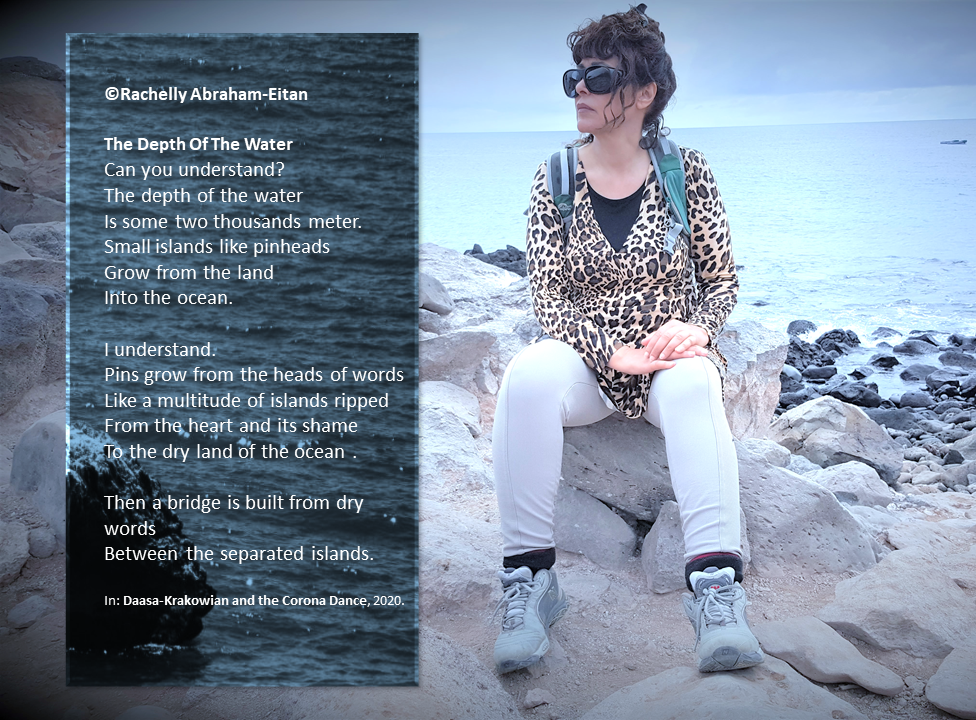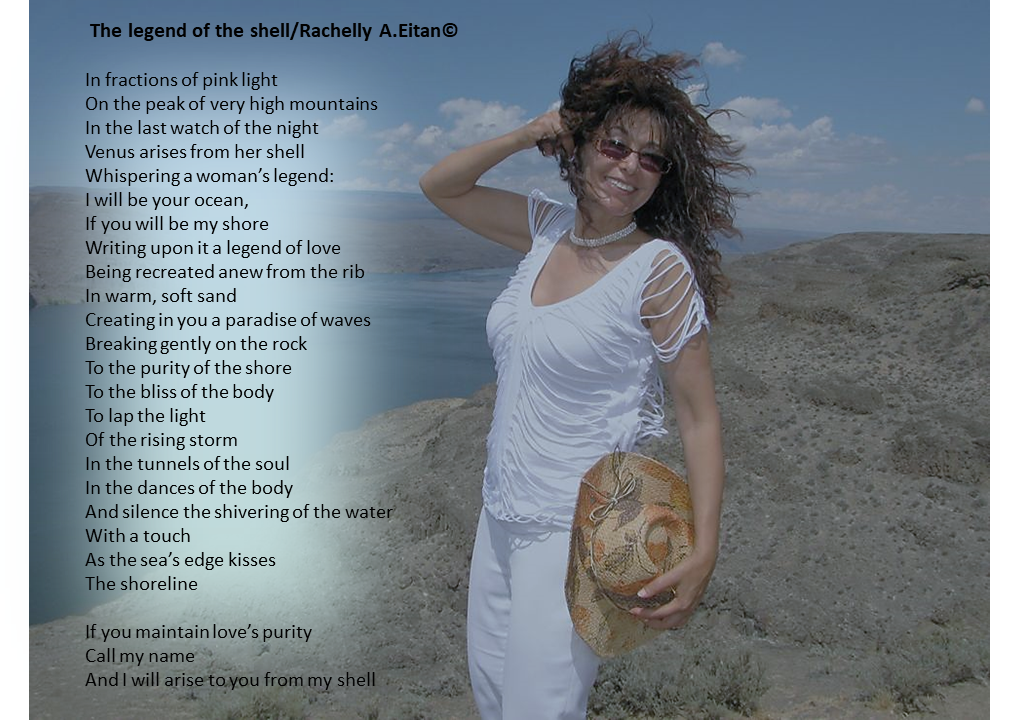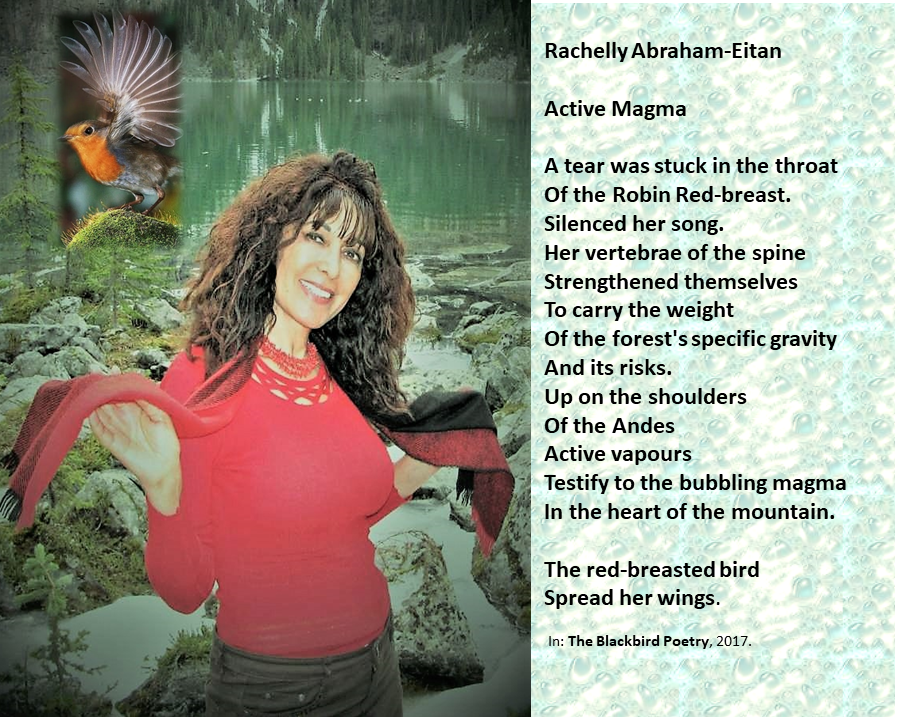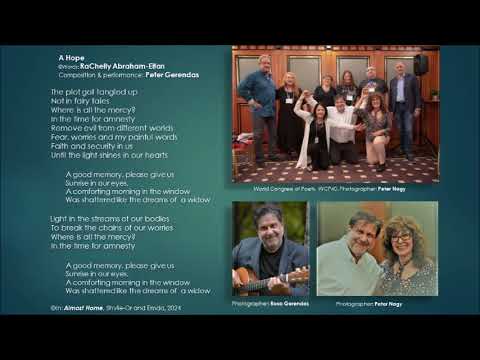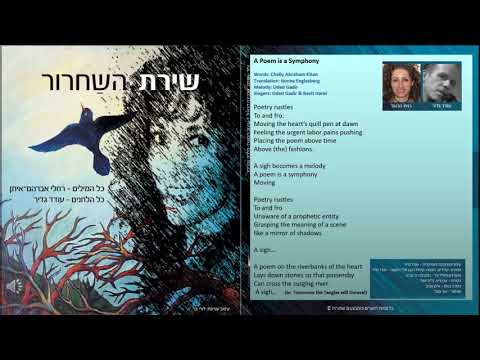Tomorrow the Tangles will Unravel
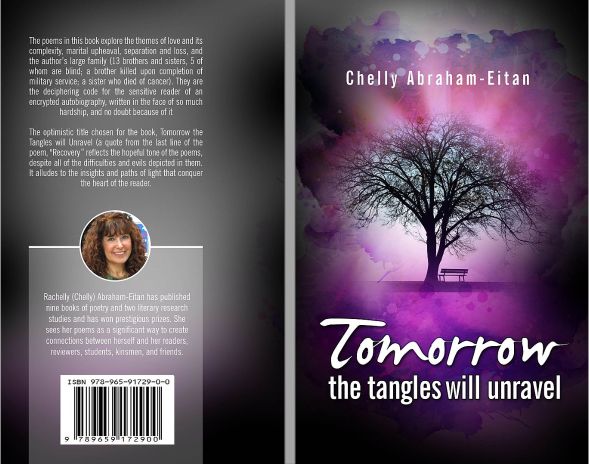
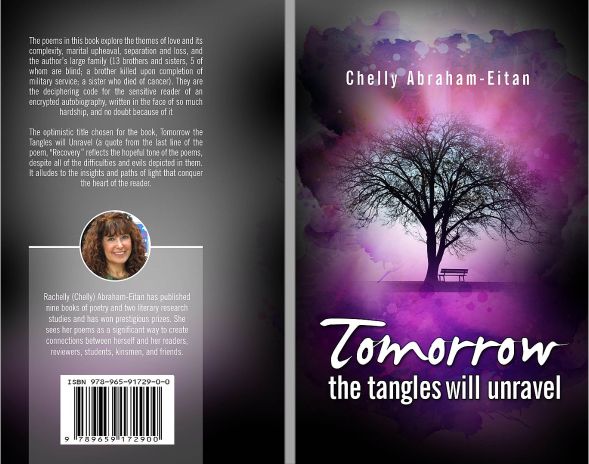
AMAZON: Heartrending family and social experiences transformed into beautiful, captivating poetry.
The poems in this book explore the themes of love and its complexity, marital upheaval, separation and loss, and the author’s large family (13 brothers and sisters, 5 of whom are blind; a brother killed upon completion of military service; a sister who died of cancer). They are the deciphering code for the sensitive reader of an encrypted autobiography, written in the face of so much hardship, and no doubt because of it Despite the sadness and angst, they bring light and delight to the heart of the reader. The optimistic title chosen for the book, Tomorrow the Tangles will Unravel (a quote from the last line of the poem, "Healing") reflects the hopeful tone of the poems, despite all of the difficulties and evils depicted in them. It alludes to the insights and paths of light that conquer the heart of the reader.
Descriptions: The poems in this book explore the themes of love and its complexity, marital upheaval, separation and loss, and the author’s large family (14 brothers and sisters, 5 of whom are blind; a brother killed upon completion of military service; a sister who died of cancer). They are the deciphering code for the sensitive reader of an encrypted autobiography, written in the face of so much hardship, and no doubt because of it:
“In my heart the hole is eternal
As a child my hollow soul
Widened to a deep hole
Filled with layers of soot and the sands
Of time.”
The optimistic title chosen for the book, Tomorrow the Tangles will Unravel (a quote from the last line of the poem, "Healing") reflects the hopeful tone of the poems, despite all of the difficulties and evils depicted in them. It alludes to the insights and paths of light that conquer the heart of the reader.
Reviews:
This book is another step in the development of Chelly Abraham-Eitan’s work. The poems are self-revelatory and daring. The book reveals the power of her poetry and her burning desire "to touch the multitudes.”
Prof. Nurit Govrin
We have before us a talented poet who controls the tools of expression and uses them to open up new horizons. Her ars
poetica works reveal her ability to build new structures on the foundations of ancient buildings.
Prof. Ziva Shamir
Rachelly Avraham-Eitan is a poet who touches my heart. The soundness and vividness of her poems transform the reader into a part of her family, drawing us into events, difficulties, embraces, struggles, and loyalties.
Prof. Miron Izakson
The poetry of Rachelly Abraham-Eitan is powerful and captivating, full of tenderness that stems from ability, but also
attention to the smallest detail. The vicissitudes of her personal life are anchored in the shifting reality of Israel through the generations.
Dr. Lilian Debbie Gouri
The authentic poetry of Rachelly Abraham-Eitan stems from a rich emotional world and has a truly magnetic quality. For this reason among others, I took upon myself to translate her poems into Spanish. In addition to holding a PhD from Bar-Ilan University, Rachelly has received several honorary certificates and honorary doctorates from the International Academy of Art and the World Congress of Poetry.
Prof. Ernesto Kahan Message:
These poems write themselves. I do not plan to write them. These poems write me and draw my soul into their full complexity. To my joy, these poems move my readers and capture paths of light and understanding in their hearts.
Bio Rachelly (Chelly) Abraham-Eitan has published nine books of poetry and two literary research studies. She holds a PhD from Bar-Ilan University as well as several honorary certificates and honorary doctorates from the International Academy of Art and the World Congress of Poetry. Her writings have been published in many literary magazines, translated into numerous languages, and won prestigious prizes. She has been awarded 2nd place at the 2016 36th World Congress of Poets and the Prime Minister’s 2017 Award for Poetry. Since 2008 she has edited and produced the literary magazine, Shvilim. Rachelly was born in Amqa, a village in northern Israel, to a large family (14 brothers and sisters, 5 of whom are blind). She has written poems ever since she was a small child. Traumatic experiences strengthened her attraction to poetry and made it an essential survival mechanism for the rest of her life. She sees her poems as a significant way to create connections between herself and her readers, reviewers, students, kinsmen, and friends. It’s been there forever.
